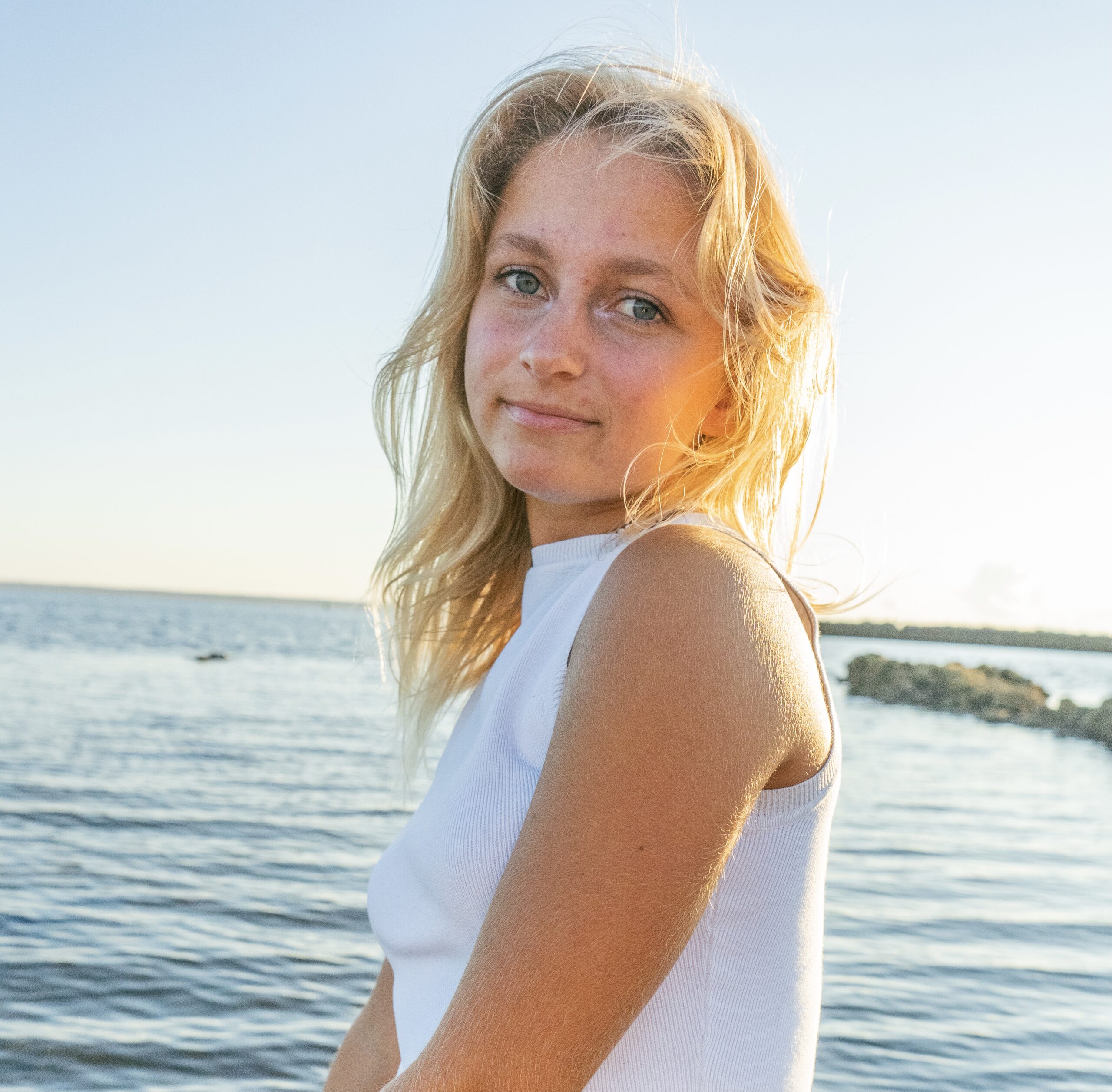Outlook explores variables that shape and influence individuals relationships with nature and how they seek to inspire, adapt and reimagine what conservation can look like moving forward in a world where Climate Change is affecting a broad range of human and natural systems.
Author: Zofia Leary-Forrey, SMCC Spring Intern. A rising senior at Cape Elizabeth High School and part of the CEHS Environmental Club.

OUTLOOK: Chats and insights with students ages 14-18 about Climate Change.
This Spring, Zofia Leary-Forrey, a rising senior at Cape Elizabeth High School, set out to learn more about how youth connect with the natural world and their response to Climate Change. Through meeting and interviewing many students, ages 14 to 18, she was able to get an array of perspectives and insight into what the younger generation is feeling and thinking about climate change.
A COLLECTION OF VOICES
By Zofia Leary-Forrey
Every person has a different experience with nature. Some have them on the water, others in the mountains, some in the forest, during the first snowfall, and on long walks. “It’s fun to be in the sun all day,” and “[immerse] myself into the sounds, smells and beautiful images” of nature. It is fun to use nature to connect with my sisters, grandmothers, and parents. We worry that these shared experiences with family, friends, and nature will end as technology advances. “Younger kids are given iPads,” breaking their possible connection to the natural world. They spend hours watching Cocomelon instead of being outside painting rocks or building fairy houses like we did when we were kids. Younger kids will not get the same experiences as we, or our parents, or grandparents did. Our generation doesn’t even get to experience nature at its best, and “nature deserves to be at its best.” “[We] try to appreciate nature more,” but as time moves forward we notice the creeping tides, slushy snow, warmer waters, and shorter winters. “The world is ending,” and we have “no power, no money, and little education on what to do.”
We are angry. Angry at older generations, corporations, and our educational systems. We want to believe our generation can be the ones to bring change, but it is difficult when we are not the ones responsible for causing the issue and when the impacts are harder to visualize. We wish that “the lack of compassion for the planet” was not a looming presence, but misinformation and misconnection have created a rift between humans and the environment. We feel defeated when we realize “one person can not take down an entire corporation,” then annoyance leeches in when we see that all the corporations do is “greenwash.” We want to be sustainable, but oftentimes it is inaccessible. We wish we could say that we were climate activists, but the resources are not always there. Our future is “weak” and “bad” if this cycle continues. “[We] want to have a future”, we want “the skinny polar bears in the Arctic to live,” we want “the little bugs that crawl into [our] homes” to live, and we “would like to live.” To do this, “we need to band together to break the cycle ~ this earth does not equal money. ”
We are doing what we can in the ways we know how by recycling, composting, shopping second hand, eating less meat, shopping local, using our cars less, and educating ourselves. However, a lot of the time these practices feel small. We are hopeful for a greener future, and we will start by each doing our parts. As a generation, we were raised to “stand up against bullies and to support victims,” today, tomorrow, and in the following, we will do just that. We will stand for the animals, the mountains, the lakes, the oceans, the trees, and our futures because as the youngest generation, we understand there is no time left.
